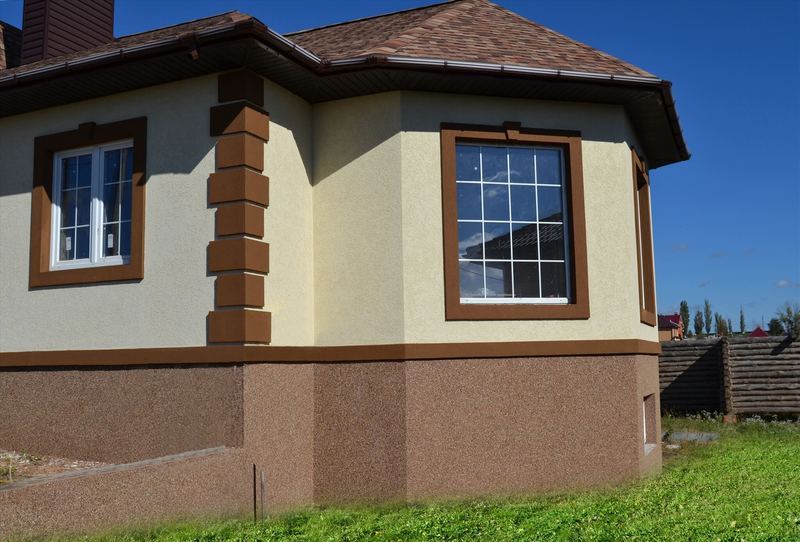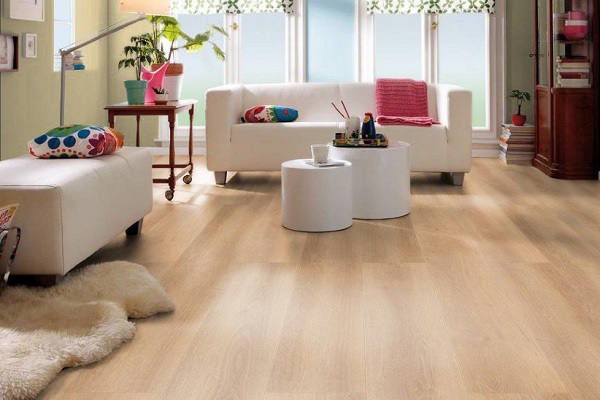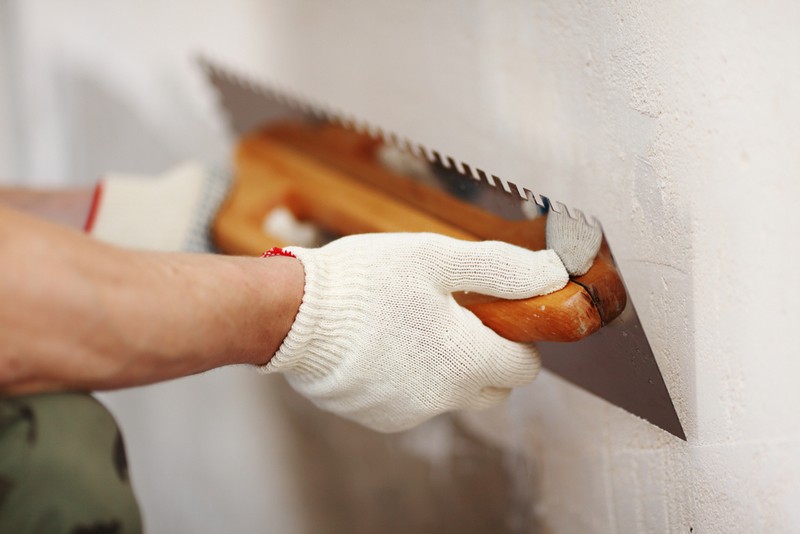PAZEGREB PLATES: PRODUCTION AND FEATURES OF APPLICATION
 The main material for the manufacture of tongue-and-groove slabs is building plaster. To connect with each other along the perimeter, they have grooves and ridges. Since gypsum products are distinguished by low moisture resistance and low strength, GWPs are used for the construction of internal partitions or lightly loaded supporting structures that are protected from moisture. In rooms with high humidity, the use of water-resistant plates with green marking paint is recommended. The price of this material is very affordable, which makes it even more popular.
The main material for the manufacture of tongue-and-groove slabs is building plaster. To connect with each other along the perimeter, they have grooves and ridges. Since gypsum products are distinguished by low moisture resistance and low strength, GWPs are used for the construction of internal partitions or lightly loaded supporting structures that are protected from moisture. In rooms with high humidity, the use of water-resistant plates with green marking paint is recommended. The price of this material is very affordable, which makes it even more popular.
Packing of tongue-and-groove slabsMounting of tongue-and-groove slabs
Benefits of GWP
Construction gypsum does not burn, has refractory properties.
It is a dielectric, odorless.
Plates are easy to process, perfectly amenable to cutting, drilling.
Self-guiding grooves make installation simple and convenient.
Installation does not require the use of special equipment.
The material is resistant to rotting, mold, non-toxic.
It has a high level of noise insulation and heat preservation.
The surface of the GWP is flat, does not require plastering.
On the plates, you can immediately apply paint, glue wallpaper, and other finishing materials.
Work with them is characterized by rather high labor productivity.
Perhaps the construction of not only single, but double walls with an air gap.
What are tongue-and-groove slabs made of?
Professional builders with experience prefer to work with gypsum tongue-and-groove slabs made using injection molding technology. Gypsum is an environmentally friendly material that can “breathe” and regulate the indoor climate. GWP meet all sanitary and hygienic standards. To enhance the strength characteristics of the composition is complemented by special plasticizing agents, to reduce water absorption is added granulated blast furnace slag.
Internal walls of PGPP
A separate category of wall material is silicate slabs made of quartz sand, lime and water. The required strength values are ensured by the effect of high temperatures in the autoclave chambers. They are fire resistant, can be installed in rooms with high levels of humidity.
There are hollow GWPs, which, compared to conventional ones, have one distinct advantage – they weigh a quarter less. At the same time they retain all the same characteristics. Their use gives a 25 percent savings, both on transportation costs and temporary, allowing you to perform work much faster, or reduce the number of workers at the facility while maintaining the deadlines.
Bearing capacity of tongue-and-groove slabs
The walls of the GWP are characterized by high bearing capacity, because they can hang shelves and various household structures. The main thing is to choose the right diameter and length of the dowel. Steel plates and corners are used to reinforce free-standing partitions. Fixing the wall in the area of the ceiling is carried out with metal pins, which can be hidden by mounting decorative cornices.



